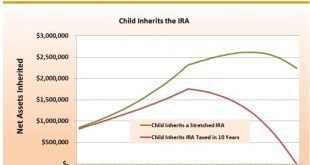Well by attacking the group Trump got the press to completely forget about the refugees on the southern border. You would think that after all this time the media would learn to deal with his misdirection.
Read More »House’s SECURE Act and the Senate’s RESA Act
Congress has been busily working on a much-needed way to improve Middle Class savings and growth over the span of their employment to boost their retirement. Dueling bills to restructure IRAs and 401ks appear to be redundant. Better known as the “Setting Every Community Up for Retirement Act” (SECURE Act) H.R.1994 and the Senate has a similar bill, the “Retirement Enhancements and Savings Act” S.792 (RESA). Both bills were passed with bipartisan support. For the ultra rich? A...
Read More »Crude economism took over our society
from Ikonoclast Democracy is seen mainly as a hindrance to economics. Technology and science are funded (or not funded) mainly at the behest of economics. Production science which assists corporate capitalism gets massive subsidies. Impact science (ecology, climate science etc.) gets pitiful funding by comparison. It is not so much the unintended consequences of technology and science which are causing climate change (for example) but the ignored consequences of technology and science...
Read More »Elinor Ostrom and common pool resources
from John Tomer Elinor Ostrom’s (1990; 2009) research focuses on common pool resources (CPR) and the dilemmas they have posed for their users and society. A CPR is a resource such as a fishing ground, an irrigation system, ground water, pasture land for grazing animals, etc. that jointly benefits a group of people (the users) but which provides diminished benefits to the users involved if each individual pursues his or her narrow self-interest without considering other users. The CPR...
Read More »Open thread July 16, 2019
What is ergodicity?
from Lars Syll Time to explain ergodicity … The difference between 100 people going to a casino and one person going to a casino 100 times, i.e. between (path dependent) and conventionally understood probability. The mistake has persisted in economics and psychology since age immemorial. Consider the following thought experiment. First case, one hundred persons go to a Casino, to gamble a certain set amount each and have complimentary gin and tonic … Some may lose, some may win, and we...
Read More »Trump’s fixation on intellectual property rights serves the rich
from Dean Baker Between making threats of actual war with North Korea and Iran, Donald Trump has also gotten us into a trade war with China. Trump’s ostensible reason for this trade war — the large US trade deficit with China — actually did have some basis in reality, but in practice the trade war is straying into turf that is likely to offer few gains for US workers and could actually lead to sizable losses. A major theme in Trump’s campaign was that China is a world-class currency...
Read More »Digital currency: cryptocoin or money-on-account?
from Joseph Huber People have become used to hearing about digital currencies (DC) such as Bitcoin. These currencies are based on new technology known as distributed ledger and blockchain technology and are also referred to as cryptocurrencies because of the data encryption involved. Cryptocurrencies represent a radical alternative to the current banking system, in that they bypass retail banks and defy central-bank control from the outset. Against this background, central banks are now...
Read More »Why economic models do not give us explanations
from Lars Syll Economic models frequently invoke … entities that do not exist, such as perfectly rational agents, perfectly inelastic demand functions, and so on. As economists often defensively point out, other sciences too invoke non-existent entities, such as the frictionless planes of high-school physics. But there is a crucial difference: the false-ontology models of physics and other sciences are empirically constrained. If a physics model leads to successful predictions and...
Read More »The data now used for “testing economic theories” provide no tests at all.
from Salim Rashid It is plausible that economics slipped into its current difficulty because all earlier theory was framed with agriculture in mind. But we are not in an agricultural world anymore. The number of available products must have expanded a 1000-fold since the 1700s. Unless one looks, it is difficult to grasp the sheer amounts of data that are generated and potentially available – but perhaps impossible to digest because of their magnitude and complexity. Below are two...
Read More » Heterodox
Heterodox



